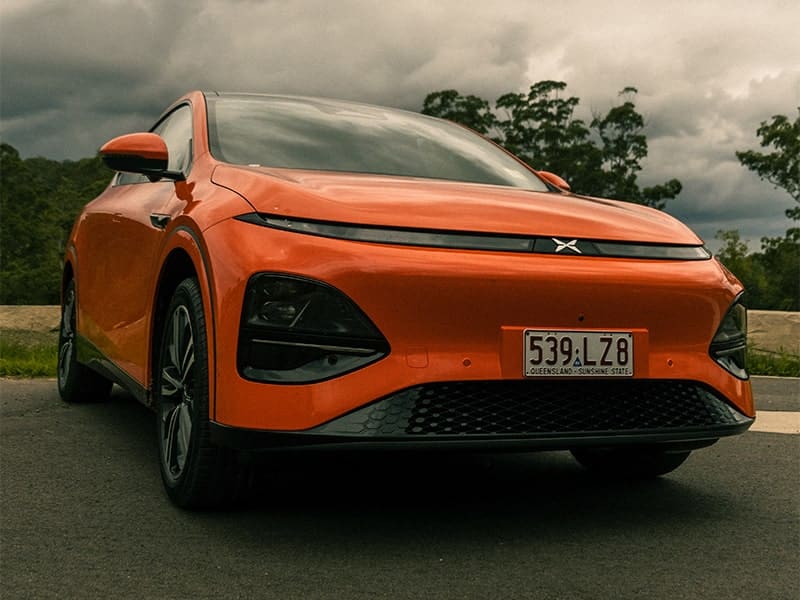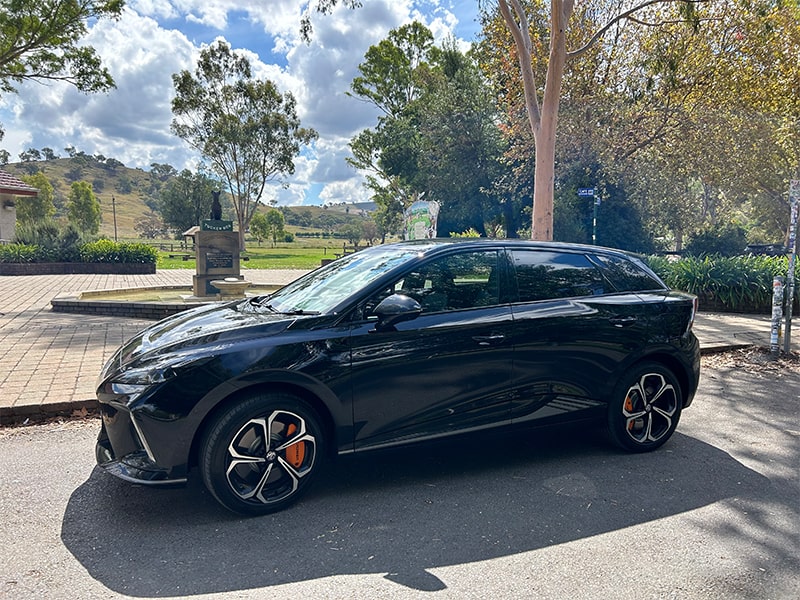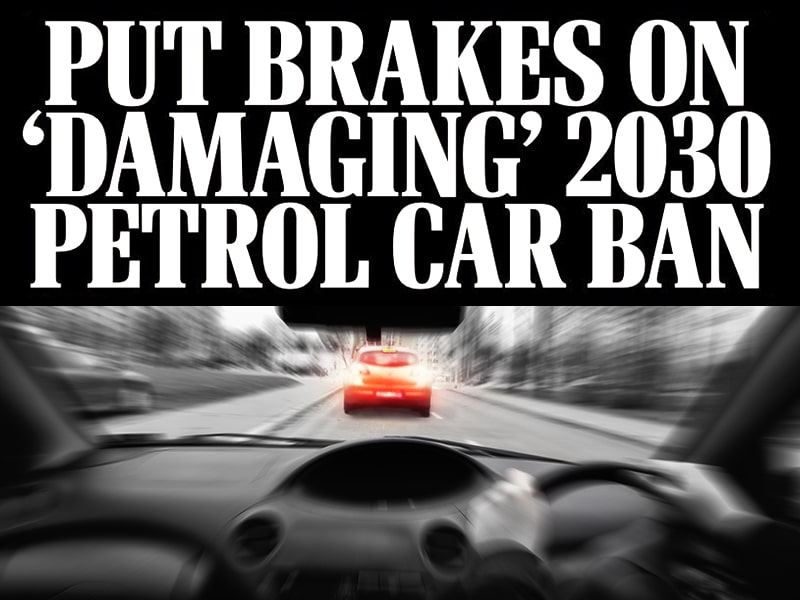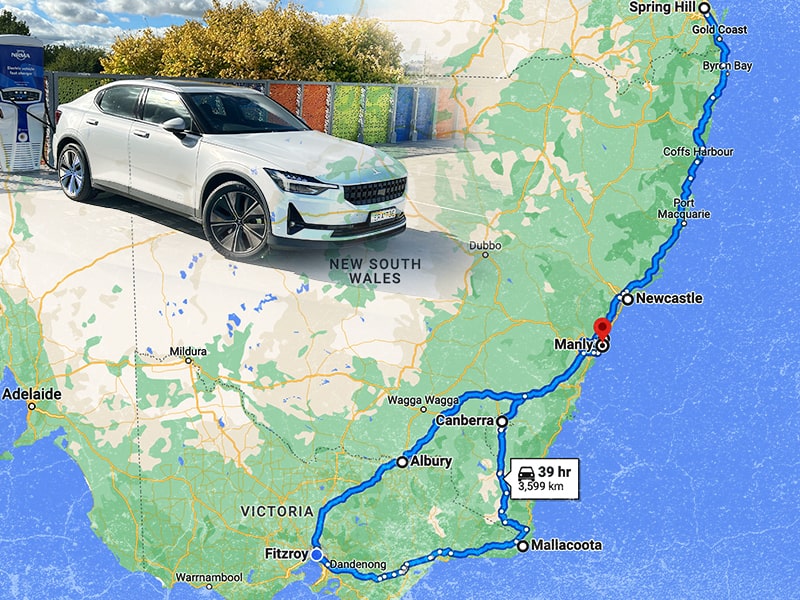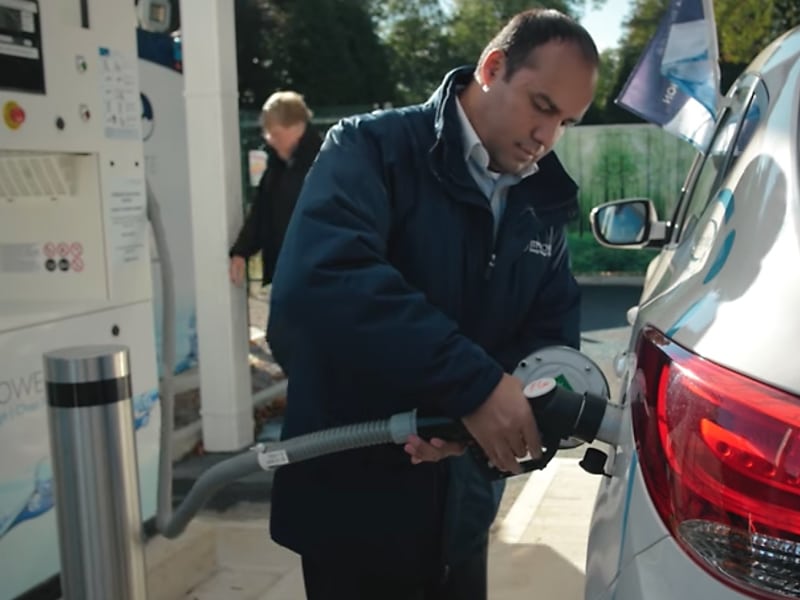
Refuelling at a hydrogen pump
Nine years ago, when I first started making Fully Charged, one of the first cars I drove was the Honda Clarity HFCV (Hydrogen Fuel Cell Vehicle). No question, it was an amazing car.
Okay, you could never actually buy one, you could lease one if you lived in a specific area in California, but it was an impressive machine. In the following years a small number of battery electric vehicles were launched onto the market. The Nissan Leaf, the Renault Zoe, BMW i3, Tesla Model S. Ones you could actually buy or lease, rent or ride in as taxis.
Around this time, I test drove the Toyota Mirai HFCV. Again, an amazing hydrogen fuel cell car, a technological achievement without question, a step forward from the Honda, smaller, more efficient and a little bit cheaper. By the time I drove that there were millions of battery electric vehicles on the road. Not only in Europe and the USA, but very significantly, China.
A few years after that I drove the Hyundai Nexo HFCV and this one was really impressive. Very smooth with a decent range on a tank of hydrogen. Throughout this whole nine-year period, in varying degrees comments would sporadically appear on YouTube or the Twitters, a simple sentence that went like this: “Hydrogen is the future.” Seriously, that was it. No back up analysis, just a simple statement. These short comments were often in response to something I’d posted about a new battery electric car. The subtext, I suppose, saying ‘battery electric vehicles will never work, mumble mumble range anxiety, mumble mumble, take too long to charge, mumble mumble batteries dumped in landfill, etc etc.’
Here’s another one that appeared very recently, and this is a cut and paste quote, I did not make this up. “Wait for hydrogen cars, the only waste they produce is water H2O.” This was after the same long diatribe about batteries, the materials, how electricity is only generated by gas and coal, and how “less than 5% of batteries are recycled in the EU.” I’m going to be gentle and forgiving regarding this person’s ignorance on the assumption that it is ignorance rather than fossil lobby group funded malice. If you ignore where the hydrogen comes from, if you ignore the myriad of rare metals in the fuel cell, if you ignore the plethora of materials used in the car’s batteries, (all HFCV’s have large lithium ion battery packs.) If you ignore all that, then it is absolutely accurate and true to state that the only thing that comes out of the small tailpipe of an HFC is water.
Of course using exactly the same criteria, the only thing coming out of the back of a battery electric car is … nothing. Other than one or two people on Twitter who are very pro hydrogen and actually know what they’re talking about, these comments come from people who I’m fairly confident have never driven either a battery electric or hydrogen fuel cell car. I’ve recently had a fresh dose of “Hydrogen is the future” comments and while I generally ignore them, I do wonder why this happens. Checking the Twitter profiles of the men who post this stuff there’s a very clear pattern emerging. If you think hydrogen is the future, even though it’s possible you haven’t got a clue about the actual technology, you are likely to be on the right of the political spectrum. From gently centrist conservative to rabid, clench fisted white supremacist. If you are of that latter tendency you might be equally likely to assume that those claiming battery electric cars are ‘the answer’ are on the left of the political spectrum.
I am a little baffled by this. I can understand such a divide over electric vehicles verses combustion engines, or fracking verses renewables. Traditional centralised energy systems (coal, gas, fracking, nuclear) tend to be supported by those with a more conservative attitude, with the notion of decentralised, locally and community owned energy generation more on the progressive side. But battery electric and hydrogen electric, why such hostility between those? For goodness sake, they are both zero emission technologies. They all have batteries, clearly the vast majority of the “hydrogen is the future” team who constantly harp on about the environmental impacts of battery materials either don’t know or brush over the fact that all HFC vehicles have substantial battery packs. All the evidence, and it’s an enormous mountain of evidence, points to the simple fact that hydrogen is probably not the answer for small passenger vehicles.
I really hope I’m wrong, I would love a world where you could go in a car showroom and buy, at the same price, a battery electric, or hydrogen electric car, knowing that there was an adequate refuelling and recharging network available. It remains to be seen if hydrogen fuel cell technology is the answer for heavy goods vehicles, but I sincerely hope it is. If the bus, truck, earth mover, ship, long term energy storage, cooking and heating list were all handed over to hydrogen, I’d be cock-a-hoop. I think it’s very hopeful in those departments, but the constant nagging problem is, where does the hydrogen come from? It’s a super abundant element but it does tend to be stuck to other things.
Currently, as I’ve endlessly repeated, the vast majority of commercially available hydrogen is ‘steam reformed’ from natural gas at large fossil fuel refineries. How do you make the steam? You heat water. How do you heat it the water? You burn oil and electricity in a refinery. That isn’t the only way you can extract hydrogen as many may jump to argue. You can run a high-powered electric current through water and that will separate the hydrogen from the oxygen. Take a big 3-megawatt land-based wind turbine and use the power from that. This is what a very innovative and clever company called ITM are doing in the UK. They take the electricity from that turbine and use it to ‘split’ water, separating the hydrogen, then compressing that hydrogen and storing it in a big tank. HFC cars can then pull up, attach a hose, fill their tank with 100% renewably sourced hydrogen and after about 5-7 minutes, they have enough in the tank to drive 300+ miles.
I love it, it’s wonderful, it means that the cars using that system are not adding to the catastrophic damage caused by the legacy of millions of inefficient internal combustion engines chundering along our roads. It costs quite a lot of money to fill the tank with hydrogen, in the USA the common price per kilogram (hydrogen sold in weight) is $16.85c. That doesn’t help many of us, but one kilogram delivers the energy equivalent of around one US gallon of petrol/gasoline. Because a fuel cell is far more efficient than a combustion engine, one kilogram is enough to drive around 65 miles in a Toyota Mirai. So $17 (currently £13.14p) to drive 65 miles. Sounds reasonable. However at current US electricity prices $17 of electricity from the grid will allow you to drive a bigger electric car (Tesla Model S) for 425 miles. I haven’t even mentioned the cost of installing a hydrogen fuel station, I won’t try and big up the numbers, I’ll just say they are very, very expensive. I won’t mention the cost and complexity of the car, and the likelihood of constant need for servicing, particularly the air filters which are big, complex and energy sapping. Air that goes into the fuel cell to mix with the hydrogen has to be unimaginably clean, and roads, as we know mainly thanks to diesel, are unimaginably filthy. Hence the cost to the consumer.
Battery or hydrogen fuel cell
Both have advantages, both have downsides. But both are a lot more nuanced, complex and challenging, which makes any kind of binary choice a bit simplistic. So maybe a better single phrase comment would be: ‘Hydrogen is definitely part of the future.’ I would like both technologies to prosper and replace fossil fuel burning, because lets’ face it, even with #selfcharginghybrids, anything is better than that.




